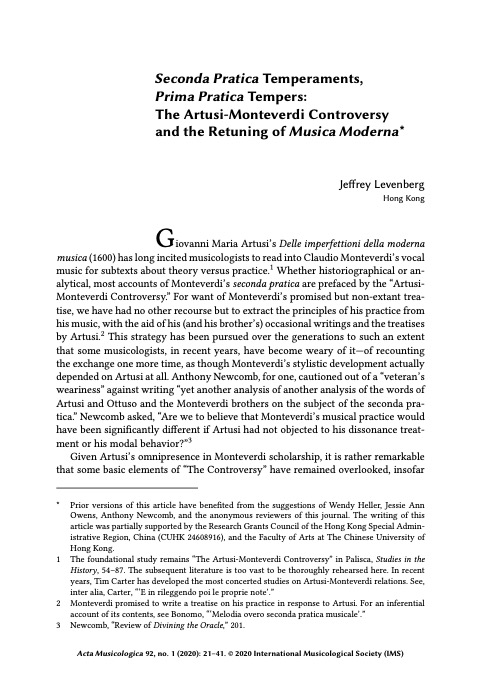Abstract
Although the Artusi-Monteverdi Controversy ranks among the most studied exchanges between a conservative theorist and a progressive composer in music history, a basic point of contention between the two sides has remained overlooked. As essential to Monteverdi’s seconda pratica as his unprepared dissonances and deviances in mode was the common tuning system of his time, meantone temperament. Out-of-tune text-setting devices figure throughout Monteverdi’s oeuvre, from his early madrigals to his late operas. Although Monteverdi left no directions for tuning, supporting evidence of this practice is in fact found in Artusi’s Delle imperfettioni della moderna musica, in which the theorist attempted to tamper with modern music—to retune it in equal temperament. Taking issue with both the systematic and the literary-critical approaches to analysis developed by Eric Chafe, Susan McClary, and others, I argue that modern musicology has become Artusian by expecting Monteverdi’s music to sound in tune. Beyond retuning our historically-informed performances of Monteverdi’s music and fine-tuning our understanding of Artusi’s theories, there are still wider implications for Western musicology that follow from this: As with ethnomusicology, the presumption that music must be in tune by our modern standards ought to be set aside in the study of Western music history.
